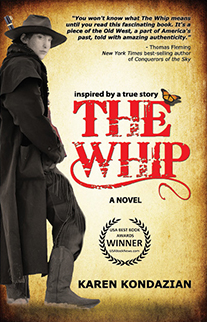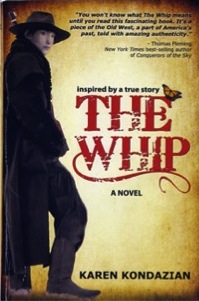Actress, Author, Adventurer
Speak Your Mind Cancel reply
Recent Comments
- Montserrat on From Amsterdam to Rome Cruise Post #12: “The Towering Mountain of Montserrat and Why the Sacred Statue (the Virgin Mary and Child) is Black. “
- John on Interview with Karen about her late-friend and companion Lex Barker during his last days
- Sum Yung Gai on Interview with Karen about her late-friend and companion Lex Barker during his last days
- Lillian Smith: Buffalo Bill’s other female sharpshooter - Recollections Blog on Lillian Smith: The Champion California Huntress
- John on Interview with Karen about her late-friend and companion Lex Barker during his last days
Archives
Join Karen’s Mailing List
Copyright © 2024 Karen Kondazian
Terms of Service & Privacy Policy | Data Access Request










Newest Book Review for The Whip
08-31-12: Karen Kondazian Cracks ‘The Whip’
Stages of Identity
There’s always some true story out there that’s stranger than fiction. The question facing a writer is whether or not to tell the story as fiction, or simply write a work of non-fiction. If you choose the latter, you can be limited by what we know of the subject; if that adds up to “not much,” then your book is going to end up being mostly conjecture. But if you choose to fictionalize a real-life “stranger than fiction” story, you run the risk of writing a novel less interesting than reality.
It’s a matter of balance with this sort of material and Karen Kondazian gets the balance right with ‘The Whip,’ a slim, smart western based on the story of Charlotte “Charley” Parkhurst. Here’s the backstory; Charley Parkhurst, brought up as an orphan, was a renowned stagecoach driver in California for Wells Fargo (called a “whip,” thus the title) who had runs from Watsonville to Santa Cruz and from San Francisco to Sacramento. When he died in 1879, it was revealed that he had been a woman living as a man for the last 30 years; moreover, evidence showed that Charlotte had at one time borne a child. A small dress was tucked away in a chest. That’s pretty much what we know.
Karen Kondazian has done a fine job taking the bones of this life and turning Charlotte / Charley into a recognizable human being. The novel has a frame-within-a-frame structure; at the outset, we meet Charley, who thinks of himself as a “he.” Then we whip back and meet young Charlotte, and Kondazian gives us a back story that explains why Charlotte took the path that led her to become a man. Kondazian’s speculation as to Charlotte’s motivations are not lightweight. There’s a lot of drama behind the change, but as the character is played out, it works.
The other problem that can crop up with “based on a true story” novels is that there tends to be more truth than story in most lives. But as she creates Parkhurst, Kondazian supplies herself with a perfectly fine plot arc of revenge, and she plays this out across the known facts of Parkhurst’s life with ease. The prose is crisp and clear, setting up scenes of action and emotion that build a fascinating vision of the west. Kondazian cuts no corners with regards to language or violence. ‘The Whip’ is brutal and upsetting when it needs to be, and it’s often rather funny.
Kondazian did not have an easy job turning Parkhurst’s “stranger than fiction” story into fiction, but the ‘The Whip’ proves to be an entertaining, rather intense and well-wrought piece of western world building. It’s a closely focused novel that knows what it wants to do and does it well. This is the life of a woman who lived as a man; how she lived and why she lived that way. Kondazian never even needs to remind us of our own ability to accommodate terror, tragedy and heartbreak. A quick look in the mirror might remind anyone that the face revealed is indeed living a life stranger than fiction.
Listen to a 4 minute clip of Karen being interviewed by NPR book reviewer Rick Kleffel and also reading excerpts from The Whip:
You can listen to the full NPR interview with Karen and Rick here: